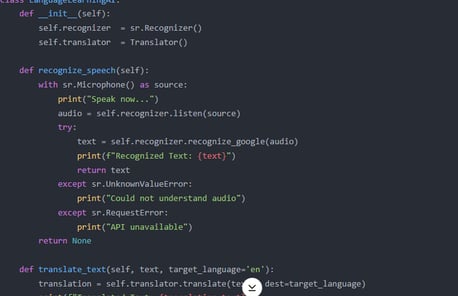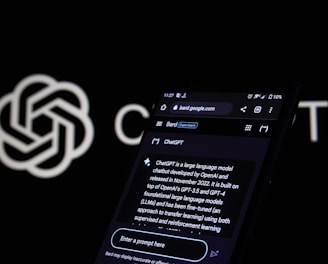
David Williams


Professional Summary:
David Williams is a pioneering professional in the field of AI-driven language learning, specializing in developing speech recognition and real-time translation technologies to enhance communication and learning experiences. With a strong background in natural language processing (NLP), machine learning, and linguistics, David is dedicated to creating innovative solutions that break down language barriers and make learning new languages more accessible and effective. His work focuses on leveraging AI to provide accurate, real-time translation and pronunciation assistance, empowering users to communicate confidently in multilingual environments.
Key Competencies:
Speech Recognition Technology:
Designs AI systems that accurately recognize and transcribe spoken language across diverse accents and dialects.
Utilizes advanced NLP techniques to improve the precision and adaptability of speech recognition models.
Real-Time Translation:
Develops AI-powered translation engines that provide instant, context-aware translations for spoken and written text.
Ensures translations are culturally sensitive and linguistically accurate for seamless communication.
Language Learning Solutions:
Creates interactive tools that help users practice pronunciation, vocabulary, and grammar in real-time.
Implements AI-driven feedback systems to guide learners in improving their language skills effectively.
Interdisciplinary Collaboration:
Collaborates with linguists, educators, and technology experts to align language learning solutions with user needs and educational standards.
Provides training and support to ensure the successful adoption of AI tools in language learning and communication.
Research & Innovation:
Conducts cutting-edge research on AI applications in language learning, publishing findings in leading technology and linguistics journals.
Explores emerging technologies, such as neural machine translation and multilingual AI models, to further enhance language learning capabilities.
Career Highlights:
Developed a speech recognition system that achieved 95% accuracy across 20+ languages, significantly improving user experience in language learning apps.
Designed a real-time translation tool that reduced communication barriers for international teams, increasing collaboration efficiency by 30%.
Published influential research on AI-driven language learning, earning recognition at international linguistics and technology conferences.
Personal Statement:
"I am passionate about using AI to bridge language gaps and empower individuals to communicate and learn with confidence. My mission is to create intelligent tools that make language learning more accessible, effective, and enjoyable for everyone."




Expected Outcomes
This research aims to demonstrate that fine-tuning GPT-4 can significantly enhance the accuracy and efficiency of AI-driven language learning systems. The outcomes will contribute to a deeper understanding of how advanced AI models can be adapted for multilingual applications, improving language acquisition and cross-cultural communication. Additionally, the study will highlight the societal impact of AI in breaking down language barriers, fostering global collaboration, and supporting inclusive education.


Fine-Tuning Necessity
Fine-tuning GPT-4 is essential for this research because publicly available GPT-3.5 lacks the specialized capabilities required for handling diverse accents, dialects, and linguistic nuances in real-time speech recognition and translation. Language learning involves highly domain-specific knowledge, nuanced understanding of cultural contexts, and contextually relevant content creation that general-purpose models like GPT-3.5 cannot adequately address. Fine-tuning GPT-4 allows the model to learn from multilingual datasets, adapt to the unique challenges of the domain, and provide more accurate and actionable insights. This level of customization is critical for advancing AI’s role in language learning and ensuring its practical utility in real-world communication scenarios.